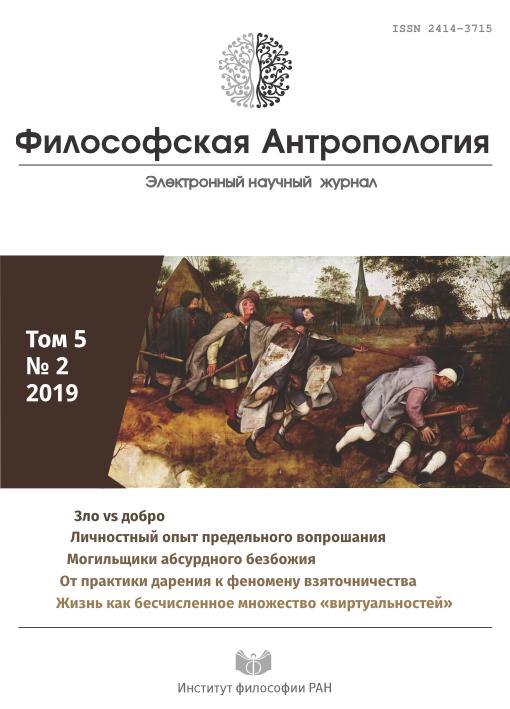Bergson
DOI:
https://doi.org/10.21146/2414-3715-2019-5-2-118-135Keywords:
intuitiveness, spiritualism, philosophy of life, duration, space, continuum, positive metaphysics, consciousness, freedom, perception, evolutionAbstract
The article gives a holistic overview of the work of the French philosopher Henri Bergson (1859–1941) starting with the philosophical psychology described in the “Time and Free Will: an Essay on the Immediate Data of Consciousness” (1889), and then — through the development of ontology, epistemology and the theory of evolution in “Matter and Memory” (1896) and “Creative Evolution” (1907) — until the later ethical and religious concept, which is stated in the work “Two Sources of Morality and Religion” (1932). The author considers the evolution of the ideas of Bergson, who chose “duration” as the main concept of his philosophy, the interpretation of which, gradually enriched by new meanings, determined in many ways the novelty and originality of the teachings of the French thinker.

